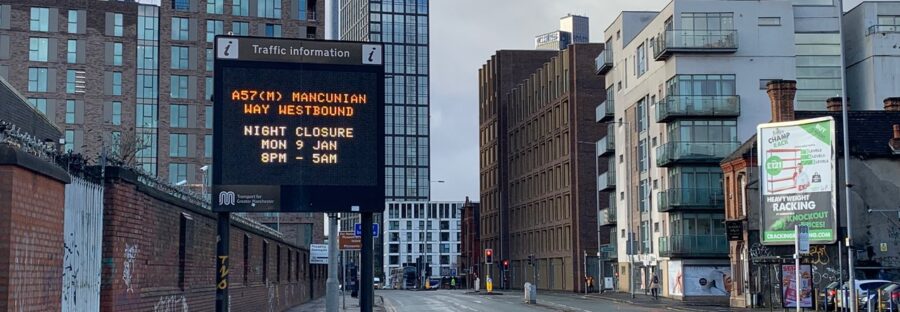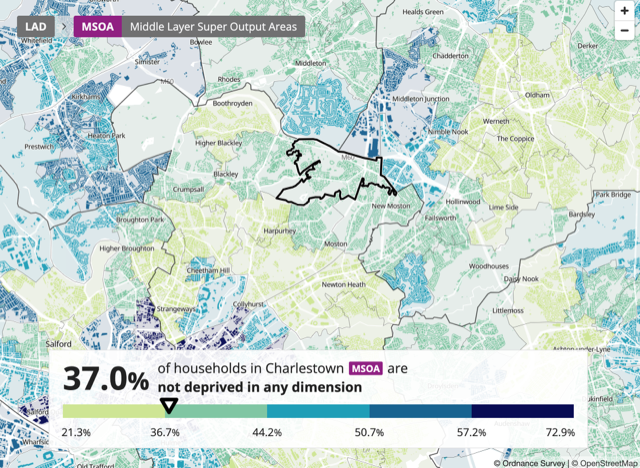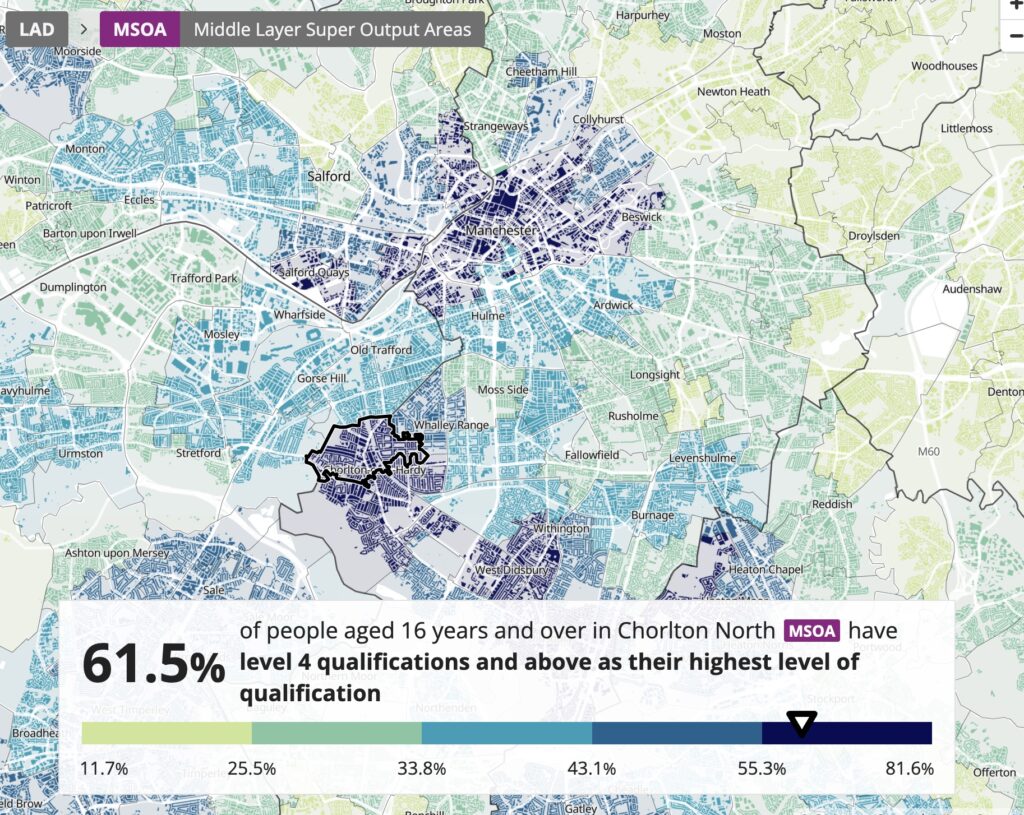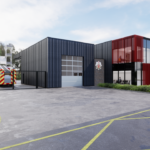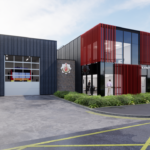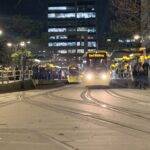How does Blackley and Charlestown compare to other wards within Manchester?
- More than 50% of people in Charlestown are deprived.
- North Manchester is a ‘desert’.
- Andy Burnham: “Today is the start of the journey of creating a clear and equal pathway for technical education”.
Since the decline of the industrial revolution in the early 20th century, the North-South divide is a problem which has failed to be dealt with.
Declining staple industries such as coal and textiles have further alienated the North, coupled with big businesses prioritising investment in London rather than other cities such as Manchester or Liverpool.
Despite this problem being a constant issue that is discussed in Parliament, is this a topic that needs discussing on a local level?
Does Manchester have a North-South Divide?
When you think of Manchester you think of the unity of the people. Everyone is together, working, one city united. But is this a true reflection?
Back in November 2022, a proposal for a night tram was the topic of conversation at a Manchester City Council meeting. This led to councillor Basil Curley addressing the council regarding the lack of public of transport in the North Manchester region.
Councillor Curley said: “In my ward in particular [Charlestown], we are very keen to improving links to our area from the city. It is a desert, it’s a bus desert, it is a public transport desert. Every chance we get to highlight that to Andy Burnham we will”.
The problems with public transport into North Manchester stretch further than this. Using data from the Office for National Statistics (ONS), the differences between North Manchester and South Manchester can be visualised.
Census 2021
The Census is a set of data compiled by the ONS to create a snapshot of society. It is completed every 10 years and helps to form a picture of people and households in England and Wales.
Using this data, Census Maps helps to compare households within areas as big as Greater Manchester to electoral wards.
The Census 2021 data helps to understand the concept of how different North Manchester, specifically Blackley and Charlestown, compares to South Manchester.
For example, according to ONS, 37% of people living in Charlestown are not deprived in any dimension. However, when compared to Didsbury Village, there is a major difference as 61.8% of people living in Didsbury Village are not deprived in any dimension.
That means more than half of the people living in Charlestown are deprived at least one dimension of education, health, employment or housing. Using these measures we can further compare Blackley and Charlestown to South Manchester.
For example, 24.7% of people aged 16 years and over have no qualification yet compared to Chorlton South only 11.3% have no qualifications.
The gap in education is further visible as only 21.5% of people living the Boothroyden and Blackley area have a level 4 qualification (degree, BTEC higher, professional qualification in teaching, accountancy or nursing). But 61.5% of Chorlton North have a level 4 qualification.
What does this all mean?
It is clear from the data that Blackley and Charlestown are very different economically and socially to wards in South Manchester.
The gap in education consolidates the lack of economic productivity in North Manchester as only 57.9% of people in living in Charlestown are economically active compared to 71% in Chorlton North.
This lack of economic activity correlates to the type of housing within North Manchester. 41% of households in Charlestown are socially rented.
Socially rented means that a lower-cost rented housing is provided by a social landlord which typically is either the council or housing association.
However, in Withington West only 11.4% of households are letted by the council or housing association.
What is being done?
The data presented shows the vast difference in Manchester between its North and South communities. This is what Mayor of Greater Manchester, Andy Burnham is aiming to change.
A new project called Greater Manchester Baccalaureate aims to create two pathways for those either going to university or a technical career.
The Greater Manchester Baccalaureate, or MBacc as it will be known, will allow Greater Manchester will have further oversight of post-16 technical skills, allowing local leaders to better shape how the city-region supports the one in three young people who do not want to go to university and match them into the skilled jobs being created in the local economy.
Speaking on the proposal for 2024, Andy Burnham said:
“The EBacc is great for young people who want to go onto university, but there is no equivalent suite of qualifications at 14 and 16 that align with the real-life employment opportunities being created in our city-region. There is also no direct link to employers, leading to skills gaps in the Greater Manchester economy and confusion from young people on what they need to do to secure a job in their chosen industry. Today is the start of the journey of creating a clear and equal pathway for technical education.”
It is clear that the links between employment, housing and education are all universally linked to the lack of jobs and progression within the Greater Manchester region.
A community like Blackley and Charlestown needs the help it can get as it has been alienated for too long and has fell behind its South Manchester counterparts.


